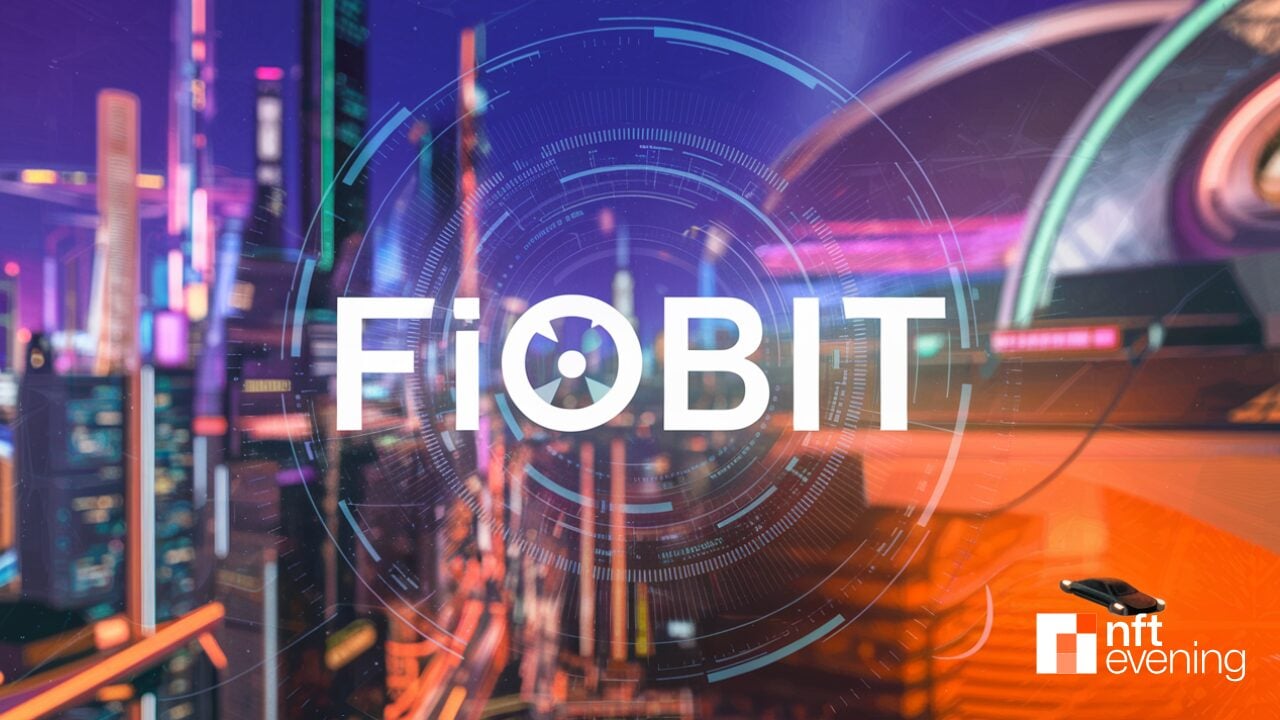The Metaverse… Post-COVID, the Metaverse was the leading technology trend. With worklife entering the home and remote working becoming mainstream due to the global lockdown, international virtual meeting platforms gained a unique and fruitful period of interest and investment.
As conventional remote communication and meetings saw a mighty boom of interest, forward-thinking solution providers and businesses were ready to experiment with the new stage of digital communication. From consumer-focused experiences to enterprise support, the Metaverse platform became a central focus.
The post-COVID period saw leading firms like Nike and Lenovo experiment with virtual shared environments to enhance various outcomes. However, with the working world returning to the office or leveraging hybrid environments, general interest in completely transformational VR working and customer Metaverse services dwindled in favour of partially immersive solutions—this can be seen with the growing interest and investment in MR, AR, and spatial computing devices such as Apple’s Vision Pro, which combine real world and digital assets.
With the change of interest, major Metaverse and virtual meeting platforms are starting to suffer, closing doors, axing staff, and receiving little investment from parent firms. Here is a rundown of some recent victims of the Metaverse crash.
VRChat Axes 30 per cent of Staff
Most recently, reports have circulated highlighting how VRChat is losing a rapid number of users following its COVID boom. VR Chat is laying off roughly 30 per cent of its staff due to slow growth and overhiring during the lockdown period.
CEO Graham Gaylor said in an email regarding the layoffs:
We’re reducing the size of our team by around 30 per cent and saying goodbye to many talented team members in the process. – When VR growth slowed in 2022, and VRChat’s growth slowed with it, we were faced with the challenge of needing continued growth despite a core market that needed longer to mature. Our solution this year was to build a product organization to help us identify, focus, and execute on what would make us continue to grow despite market conditions.
Gaylor also explained that VR Chat did not maintain “2021 levels of growth,” with the CEO noting that the platform “shrank year over year,” with “a scaled team with a smaller user base led to an oversized organization & burn rate relative to revenue and product scale.”
Despite the dire news, the CEO is keen to push the platform forward with new leadership. “We have strong new product leadership, we have a clear mission to bring the magic of immersive social connection to billions of people, [and] we have a clear two and five-year plan to get us to rocket-ship levels of success,” Gaylor noted.
Glue Collaboration to Shut Down, Operating Firm Declares Bankruptcy
On April 8, 2024, the company that runs the virtual reality collaborative platform Glue declared bankruptcy as per the decision of the District Court of Helsinki.
Following the news, the company entered the process of selling its assets, including the Glue platform. However, a new company didn’t purchase the platform at the time—leading Glue to shut down for a short period. Despite its best efforts to avoid this situation, the company stated that it was unable to find a timely solution.
The current version of the Glue platform is 2.0, which allows users to utilize various remote meeting tools, such as virtual spaces, customizable assets, and presentation tools. Notably, the service has been adopted by firms like T-Mobile, which has hailed its success.
However, despite the difficult period, it appears that Glue may have a new lease of life. Recently, Hyperspace purchased the platform with the hope that it can reach its previous success levels.
Mozilla Shuts Down Hubs Service
Earlier this year, Mozilla announced that it would shut down its Hubs virtual platform, including the Hubs Demo Server, Managed Subscription, and community resources. Mozilla’s web browser developer mentioned that this decision resulted from the organization-wide restructuring.
Hubs shut down on May 31, 2024, and new subscription creations were disabled and turned off. Additionally, a new tool to download data was made available on April 1st, 2024, for demo users and subscribers.
Mozilla stated that active development and maintenance of Hub’s codebases and alternative community resources would be halted after the shutdown.
In a blog post by the Mozilla Hubs Team, it reassured users that its priority was to support them during this transition, with the firm stating:
This will be a multi-month process with three members of the Hubs team overseeing the transition. We look forward to having more time to reflect on the full history of the Hubs project, where we succeeded, where we came up short, our feelings about it ending, and Hubs’ overall legacy. However, right now our only goal is to support you as you have so lovingly supported us after learning this sad news and over the last six years.
The decision to close down Hubs is a significant change from Mozilla’s expansion plans announced in July last year. The plans were aimed at increasing the platform’s reach to more education and enterprise users on a regional level.
Mozilla Hubs has been available to its community for over five years, allowing them to create virtual worlds, upload assets, and organize meetups.
According to Mozilla, the Hubs community has created 115,732 avatars and 215,923 scenes and hosted meetups for nearly 10 million attendees, representing a significant amount of creativity and innovation. Many of the Hubs team members will be moving to the Discord server, with three employees remaining to assist customers during the transition.
Meta Reducing Horison Operations, amidst Dwindaling User Base
As of March 30th, Meta removed Horizon Workrooms features, including functions such as interactive whiteboards, custom posters logos/environments/layouts, chat files/links, and tracked keyboards. Moreover, Meta has also removed all user data related to these features.
On the other hand, it appears Meta may be trying to breathe new life into its Workrooms platform, following a lull in interest in its Metaverse ambitions overall—as seen during Meta’s last Connect event, where CEO Mark Zuckerberg only mentioned Horizon: Worlds in passing, assuring the platform is being developed in the background.
Meta Connect 2024 will come up quickly as the year continues. The Menlo Park-based firm is most likely actively working on its immersive software and hardware and is ready for a big announcement.
New optimisations to Workrooms could highlight how Meta is developing its Metaverse platform, which is ready for a big showing later in the year. Workroom users can now experience upgraded features such as a new environment, improved meeting management options, better screen sharing, and optimised virtual screens.
Meta has not announced further updates to its broader Horizon Worlds platform. However, the firm may follow suit, optimising the Quest ecosystem as it signs new significant partnerships in 2024.
At last year’s Connect 2023 showcase, the Metaverse was noticeably absent. CEO Mark Zuckerberg mentioned that the company hadn’t forgotten its technology and Horizon service. Still, the lack of Metaverse news was striking compared to the previous year, where it was a significant focus with grand promises.
After last year’s Connect event, the Metaverse faced a significant setback. The technology failed to launch and struggled to retain interest among XR and wider audiences. The Metaverse also lost much of its media attention to the growing hype around generative AI technology.
Both hype waves are subsiding, and companies like Meta are starting to see the potential for AI and XR to work together. In terms of the Metaverse, Zuckerberg noted how AI would drive core usability. The CEO noted:
We’re also building a sandbox that will be released in the coming year, enabling anyone to experiment with creating their own AI. – As our universe of AIs continues to grow and evolve, we’ll bring this sandbox to the Metaverse, giving you a chance to build AIs that adopt an even greater level of realism, embodiment, and connectedness.
Moreover, reports from the beginning of the year indicated that the Meta Horizon platform’s user base experienced a rapid decline.
Microsoft Shuts Down AltspaceVR
Last year, Microsoft shut down AltspaceVR in favour of its Teams-integrated Mesh virtual collaboration service. Microsoft acquired the service in 2017 after its debut in May 2015. The Metaverse service gained popularity over the years, but due to increased competition, Microsoft decided to close the service on March 10, 2023.
Following the closure, Microsoft transferred many of its remaining staff and resources to the development of Mesh. The transferred Altspace VR team stated that they will contribute to creating a Mesh platform that provides the “widest opportunity to all involved, including creators, partners, and customers.”
Microsoft already operated AltSpace VR through its Mesh development team, allowing for a simple resource transfer. However, Microsoft’s immersive divisions have faced constant challenges since mid-2022, casting doubt on some of the company’s XR projects.
For example, Microsoft gradually halted the development of its mixed reality toolkit (MRTK) software development kit; additionally, Hololens also faced significant concerns following a leadership shakeup in the mid-last year.
Almost a year after closing the Metaverse platform, Microsoft is refining its technology as an alternative to 2D digital meeting tools ready for Teams users – bringing new life to its XR ambitions.
What is Next for the Metaverse?
It should be stated that despite hurdles, many immersive meetings and Metaverse services, such as Engage for enterprise and Roblox for consumers, are going strong.
However, the market is clearly shifting. Technology trends and terminology change year after year, and the technology stack empowering Metaverse platforms is finding places in the industrial Metaverse and spatial computing workflows. So, the influence is felt and has already changed the way professionals communicate—even if the early incarnations of the Metaverse are not taking centre stage.
But the sector could quickly shift again. Meta Connect 2024 is coming up, and the firm could recharge the Metaverse leading into the new year to work alongside its emerging MR, AI, and educational solutions.
Can the Metaverse bounce back? It already has. NVIDIA GTC showcased how the technology is advancing to push simulation and 3D collaboration. However, as hardware becomes smaller and easier to use, the mainstream image of the Metaverse could revive itself – especially as the next generation of computers grows up with 3D online platforms as normality.
Read the full article here





